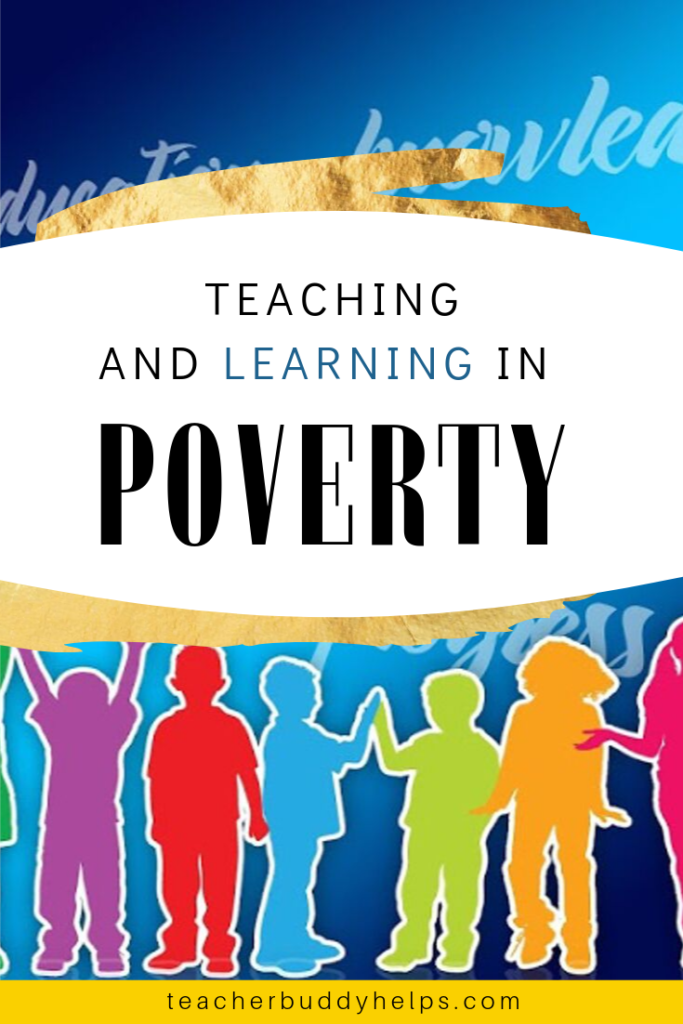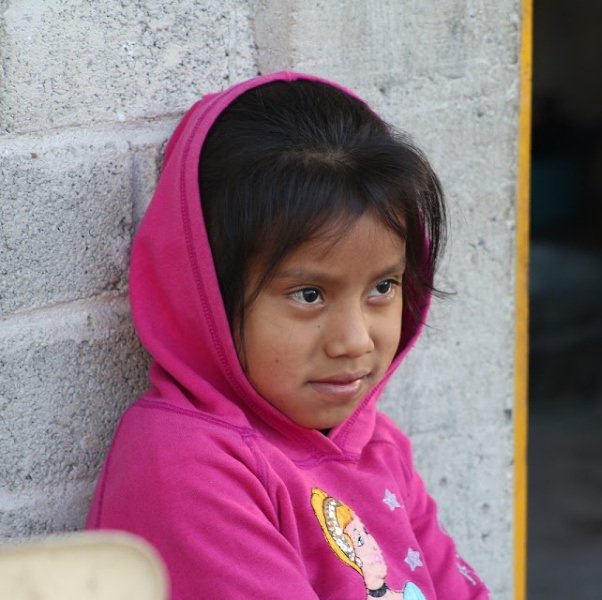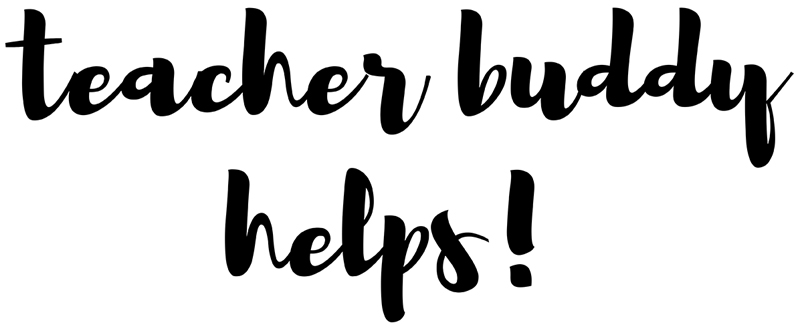Teaching & Learning in Poverty

My Experience
I have spent my entire career in the educational world in districts that teach children who live in poverty. Teaching and Learning in Poverty. Where I taught (and later as principal), they often didn’t realize they were poor. Which was often a blessing!

This means that the United States of America truly has an amazing government. The USA can support families and children well enough that many of their children don’t realize they are poor.
I’m sure that poor children in India, Mexico, China, and other countries realize they are poor. Furthermore, often our children (especially the young ones) don’t realize they are poor.
Especially those that are fortunate enough to live in a home with a strong adult support system. For example, some families have grandparents close by providing support (and often childcare).
And these families often get government assistance for both rent and food, so the kids can have a fairly stable environment yet still be from poverty.
There are, however, many adults and children in poverty who live in a shattered, dangerous, mess of a world. Often filled with drugs, violence, living day-by-day to just survive.
In a recent social media post I read an account of a person begging teachers to not ask their students (on the first day back to school) to speak or write about what they did over the summer.
Because they live in poverty, so they didn’t do anything but wait for school to begin again. Because school is their security, school is their constant in a world filled with instability. And they were often embarrassed to have to try to complete this work when they had nothing to share.
The author went on to suggest that teachers, instead, should ask their students to make goals for the current year and list what they would like to achieve. Because all students can do that.
This might be a good place to see if you are interested in my FREE downloadable file; 101 Teacher Tips. You can get it here.
**
The Culture of Poverty – teaching & learning in poverty
A few years back, the administrators in our district had
Dr. Ruby Payne is from the south so her work mainly dealt with African-American children of poverty. Everywhere I worked, the poor communities were Hispanic. But many of the same characteristics are there for both groups.
As you are all aware, I’m sure, children in poverty are just as bright, and just as sweet as other children. But there are some, of course, that live in turmoil and come to us in a “mood.”
Sometimes you have the double struggle, as a teacher, with a second language as part of the child’s life. Dr. Payne described the ebonics that exist in many African-American communitiies.
I have seen various quotes that mention things like, the ones who are disrupting you are just trying to get your love and attention (or something similar). And they always end by reminding us to love them too.

Here is a student’s experience
Here is a quick poem that will put poverty into perspective for all of us. It was written by a student named Joshua T. Dickerson. I found it on Pinterest and want to share it with you here.
- I woke myself up
- Because we ain’t got an alarm clock
- Dug in the dirty clothes basket,
- cause ain’t nobody washed my uniform
- Brushed my hair and teeth in the dark,
- cause the lights ain’t on
- even got my baby sister ready,
- cause my mama wasn’t home.
- Got us both to school on time,
- to eat
us a good breakfast. - Then when I got to class the teacher fussed
- cause I ain’t got a pencil.
This young man’s poem reminds us to try to keep in mind that some of our students come to us with other high needs before academic learning.
A Personal Account
The first school I ever taught at was located next to the local High School. On our first day of school the High School had a drive-by shooting. Thankfully, our students had already gone home for the day.
But it reminded me not to stay past dark at our school.
Later in the year, one teacher came into the staff lounge and said, “I’ve finally heard an excuse I’ll accept.” She taught 4th grade and prided herself in the fact that she had trained her students that there was never an excuse for not doing your homework and bringing it back to school the next day.
The incident that became the exception to the rule was when one of her students told her; “momma made us all lay on the floor all night so the bullets wouldn’t hit us.”
Insights from Ruby Payne
Most homes in poverty are headed by a single mother. The men in the family are often in and out of the home; many never married the mother.
Dr. Payne describes the three classes in the United States today; P
In Poverty, RELATIONSHIPS absorb their time; childcare, transportation, housing, clothing, food, legal issues, social services, etc.
In the Middle Class, ACHIEVEMENT dominates their thinking and existence; work, school, sports, travel, preparing for retirement, banking issues, etc.
And in the Wealthy Class, CONNECTIONS are what matters (making and maintaining the right ones); private clubs, boards of directors, charity sponsorships, lawyers and accountants, etc.
More Insights
In a follow-up book, “Bridges Out of Poverty“, Dr. Ruby Payne explains that there are eight important resources that the poor must learn about and have access to achieve in our society, and to navigate out of P
- Financial
- Emotional
- Mental
- Spiritual
- Physical
- Support Systems
- Knowledge of middle-class hidden rules
- Role models
Families and people in poverty must learn to navigate and improve each of those eight factors. Often the most difficult is learning the hidden rules of the middle-class.
And she also lists the following as common parts of generational poverty.
- Instability of housing
- Violence
- Food insecurity
- Unemployment/ underemployment
- Unaddressed health issues
- Frequent exposure to addiction
- Predators (both inside and outside the group)
- Periodic homelessness
- Crowded housing/lack of personal space
- Incarceration
- Lots of time at agencies getting assistance
- Uneducated/ undereducated adults
- Limited knowledge bases
- Death
The Role of Language and Story – also by Ruby Payne
Along with navigating the middle-class culture, there are also different types of language that students need to learn to navigate through – to be successful in school. This learning is often much easier for children born in the middle and upper classes.
There is “Frozen Language” things that stand the test of time like the pledge of allegiance, wedding vows, etc.
There is the “Formal R
Next is the “Consultative” which is used for regular conversation which is not as structured as the formal one.
Then there is the “Casual” language between friends and in communities and families. This vocabulary is often very limiting with between 400-800 words only.
And the final “language” is “I

As you can tell, I am fascinated with the insight that Dr. Payne has into the complex world of poverty.
If you are interested in learning more about this, I highly recommend her books.
Here’s an article I wrote about teacher support;
“Why Did You Become a Teacher? What’s Your Why?
Just remember to give them what they need when they come to your classrooms.
Until next time,
Your Teacher Buddy






